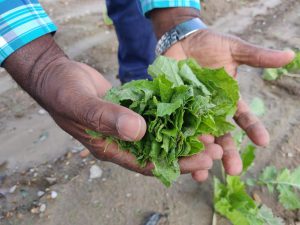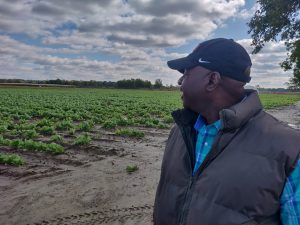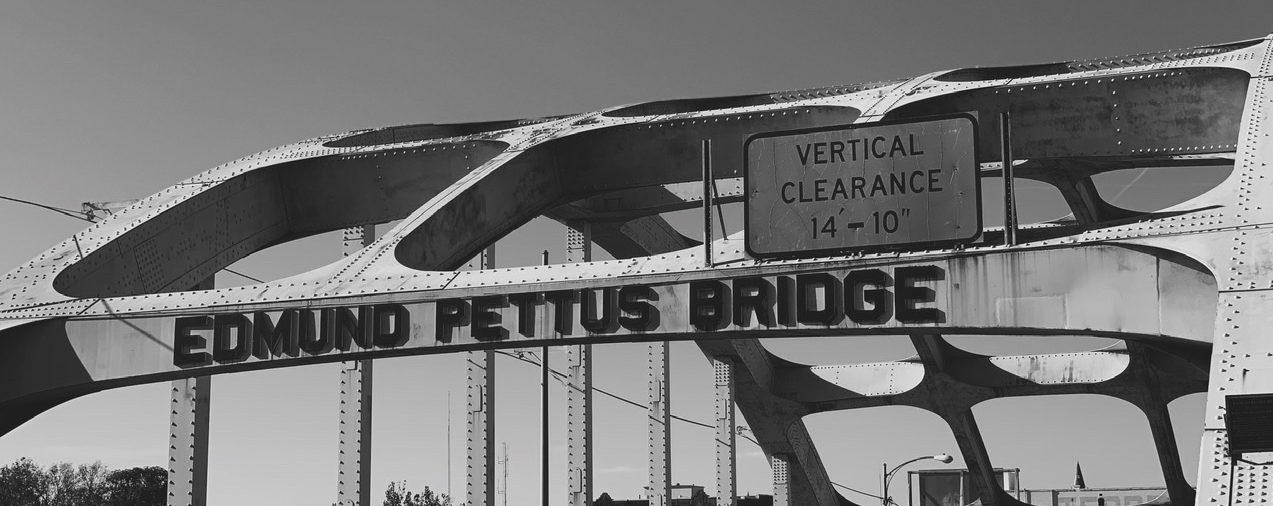October 31, 2019
I was nervous. I sat at Joni’s Nook, which had become our Mound Bayou fortress of sorts, waiting for the arrival of Mr. John Coleman. We had spoken on the phone multiple times, but this was the moment I would finally get to meet him. When the door swung open and a man with kind eyes and a smiling face walked in, my nerves evaporated.
“We’ll take you to the farm,” Mr. Coleman said.
We drove about a mile to a demonstration farm run in partnership with Alcorn State University. Mr. Coleman manages the small farm, which was established by the university in 1995 and serves as a resource for the local farming community.
One of the highlights of the interview came when Mr. Coleman showed us a booklet chronicling the Coleman family history, written by a relative who had conducted extensive research on the family origins of the Colemans. As we report on Mound Bayou, the importance of family has emerged as a key theme that weaves into many of our pieces. I could sense that theme in Mr. Coleman’s story as he flipped through the pages and showed us black and white photographs of his aunties and siblings.
Mr. Coleman’s ancestral roots run deep in Mound Bayou. His great grandfather was one of the first African Americans to purchase land from the founders of the town at the end of the 19th century. Today, the Colemans and their descendants still own about 700 acres in and around Mound Bayou. As we drove through the town on his pickup truck, he pointed proudly to the tracts of farmland we passed on either side of the gravel road. “That land’s black owned,” he would say. “And that’s black owned. That’s my uncle’s land right there. And that’s my cousins’.” I asked myself, where else in America would I hear something like that? Perhaps only in Mound Bayou.
Another memorable moment came when Mr. Coleman told us about his great grandfather. He worked as a sharecropper in Alabama before settling in Mound Bayou. While he was a sharecropper, he asked his landlord if he could buy shoes for his son. The landlord replied: “It’ll be a cold day in hell before your son gets shoes.” Nevertheless, Mr. Coleman’s great grandfather purchased his own land and became a successful, enterprising black farmer in Mound Bayou. Now, Mr. Coleman wants to continue the legacy. His 29-year-old son has also chosen farming as a career. The pride in Mr. Coleman’s voice as he talked about his son’s decision was moving for me.
I enjoyed speaking with Mr. Coleman — who spent about two hours with us — so much that I almost didn’t want our time together to end. Fortunately, he is a member of the local school board and will be attending this week’s football game. His leadership in the education system of Mound Bayou didn’t surprise me. So much of this week has been about uncovering the many ways Mound Bayouans support one another in different aspects of life. Education, health, business, agriculture — these have been the pillars of Mound Bayou since its founding in 1887. It’s impossible to tell one story without the other. As our stories start to take shape, I’m filled with excitement to see the connections across our different stories and to have a role in piecing the wider story together. I also feel a sense of responsibility. Farmers like Mr. Coleman are essential to Mound Bayou. I hope to tell their story well.


